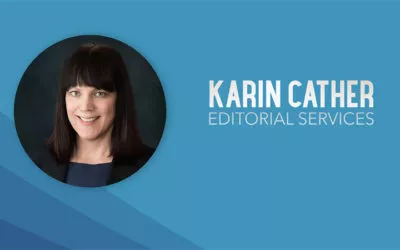Table of Contents
Do you have writer’s block? There are many potential reasons for that, but here’s a big one: you’re trying to force your characters to do things they otherwise wouldn’t do. As a result, the characters are refusing to cooperate. Naturally, under those circumstances, the words in the dictionary aren’t going quietly to the page. And so you’re stuck.
Some people force the situation, but if you could, you already would have. So what do you do?
Give Your Characters a Say
Your book will be the better for it, and it might cure your writer’s block. Bonus, your respect for your characters will rub off on your readers.
Yeah, yeah, the conventional wisdom is that you have to torture your characters. Ugh. I’m not saying that bad things shouldn’t happen to them. That’s what fiction is all about. You can make a rock from space land on a character if you want to.
On the other hand, let’s talk about one of your characters. You know, John. You need John to die in order to move the plot along.
But John is risk averse. Because John is risk averse, you can’t have him free-climb a mountain as a form of recreation and then fall off. For ten chapters, John has been telling the protagonist that he’s driving too fast, please slow down. He doesn’t eat unbaked cookie dough. He’s afraid of flying. He doesn’t gamble. He doesn’t drive fast cars. He doesn’t want to go to the cabin in the woods.
If you’re trying to write John’s death where he free-climbs the mountain for fun, and you’re blocked, it’s because John is trying to tell you he’s risk averse and doesn’t want to go near the mountain, let alone up it.
I’m not telling you not to kill John, you’re just going to have to kill him some other way.
A Concrete Example
What does this problem look like in real time? I’ll tell you about my novel A Million Monkeys, a police procedural/science fiction crossover. Of course I plotted out the book before I started writing it. (And it’s on the desk of an editor.)
My Human protagonist, Detective Eliza Benveniste, was supposed to fall in love with her detective partner, Detective Jamie Cloud.
At the point in the book where Eliza and Jamie are supposed to fall in love, I got writer’s block. I tried to skip over that chapter, but everything that happens between Eliza and Jamie affects what happens later.
Then I realized that Eliza was basically on strike, because she couldn’t possibly love Jamie, and I kept trying to make Jamie as good a detective as Eliza, but Jamie wasn’t cooperating. The story arc was going to be the same, but I had to rewrite key elements of the book. Once I accepted that Eliza would never love Jamie and that Jamie was at best a mediocre detective, I wasn’t blocked anymore.
Then, in the sequel, Sick Puppies (currently in progress), a husband leaves a wife. The spouses are major characters. The basis for the breakup was to explore what happens after characters ride off into the sunset. Do they get bored with each other? So I had the husband get bored with the wife.
The (fictional) husband followed me around the house yelling at me that he would never get bored with his wife. He loved her. She was the light of his life. He loved her more than ever. I don’t mean that literally. I didn’t actually see the character and I didn’t actually hear him. This is imagination, not psychosis. But he was still there yelling at me. As an author, you know what I mean.
This character was furious. The book ground to a halt.
At the time of this writing, the characters are broken up, and I’m not going to tell you whether they get back together. But the husband breaks up with the wife in a way that’s character-syntonic, so not in a way that infuriated them (because she’d disagree that he’d ever be bored with her, and she’d be right). It still didn’t change the plot or story arc.
The breakup happened because of something the husband would actually do, and it turns out that they don’t ride off in the sunset together because there is no such thing as riding off in the sunset together: wherever you go, there you are.
What Do You Mean Character-Syntonic?
Well, there’s also character-dystonic. I made these two terms up out of the terms ego-syntonic and ego-dystonic.
Basically, something is ego-syntonic if a trait makes the person who has it happy. Something is ego-dystonic if a trait makes the person who has it unhappy or repulsed. So, for example, if someone is afraid of intimacy and ends up sabotaging relationships, but that makes them miserable, then they might get therapy, because whatever’s going on there makes them unhappy. If someone is afraid of intimacy and sabotages relationships, but they enjoy other people’s pain or the resulting chaos, they’re not going to go get therapy, or at least not participate in it in good faith, because they like what they’re doing. They’re not going to stop.
In John’s case, going mountain climbing would show risk-taking behavior. Risk-taking behavior makes John unhappy. He’s risk averse. So making John climb the mountain would be character-dystonic. Forcing Eliza into a relationship with Jamie would be character-dystonic. Having the husband get bored with the wife would also be character-dystonic.
So John has to be doing something character-syntonic that kills him, and you’re going to have to figure out what that is. The husband has to leave the wife because he has no choice, not because I tried to force a character trait on him that he doesn’t have, and Eliza couldn’t possibly love Jamie because she doesn’t even respect him. And she’s clearly in love with a character who now has a prominent role in the book because they both love each other.
Is this Really a Thing?
Well, I went and looked that up. Leo Tolstoy and Alexander Pushkin say explicitly that their characters had minds of their own, although they don’t talk at all about writer’s block.
Why? Because they were geniuses, so they just listened to their characters.
They did have writer’s block, but for other reasons. Tolstoy hated Anna Karenina as he was writing it, and three of his children died while he was writing it. Anyway, both authors were explicit about their characters’ autonomy. Tolstoy and Pushkin are quoted by a Russian critic, Konstantin Paustovsky, in his 1960 book The Golden Rose; Literature in the Making (1960).
When a visitor to Tolstoi’s home in Yasnaya Polyana told the great writer that he had been cruel to make the lovely Anna Karenina throw herself under a moving train, he replied: “What you say reminds me of a story told about Pushkin. The poet once said to a friend of his: ‘Just think what a trick Tatyana has played on me. She’s gone and got married. Never expected it of her.’ I can say the same about Anna Karenina. My characters sometimes do things I don’t in the least want them to do. In fact they do the things that are done in life, and not what I intend them to do.
Konstantin Paustovsky, The Golden Rose: Literature in the Making
Anna Karenina is the main character in Anna Karenina (Tolstoy), and Tatyana Larina is the love interest in Eugene Onegin (Pushkin), and if these books are no longer taught in universities, they should be. And, again, Pushkin and Tolstoy recognized what these characters would and would not do, and they wrote accordingly.
So What About John?
Is it that important to your story that John die because he free-climbed a mountain even though he wouldn’t even go to the top of the Empire State Building? You’re going to have to write John into unrecognizability. Can you have him wake up one morning shouting YOLO! at the top of his lungs only to have him free-climb the mountain, do it wrong, and die? Then you’ve introduced humor into your story where perhaps you want none.
You’re going to have some rewriting to do.
How Do You Know That’s Why You’re Blocked?
Pay attention to the characters. You might have to go and write an interview of the characters to get to know them better. Don’t put the interviews in the book. You’re just trying to figure out what they want to do, what they’ll put up with, and what they won’t do. You also need to know their motives. I mean no, John doesn’t want to die, presumably, but John is going to have to be cooperative in terms of the events leading up to it. Do you need him to die by accident? Find another accident—one that works. Slipping on a bar of soap in the shower, falling backward, and hitting his head will work. Even having him choke on a cookie will work.
Another possible way to figure out how John should die is to search for everything John has said or done so far and cut it and paste it into a second document.
This will take time, yes. But presumably what you’ve written so far has taken time. And if you respect John, then your readers will respect John, and then the readers will respect your book.
Respect? John is a Villain!
Right, but he’s your villain. What I mean by respect here is that you have created a character, and you can’t turn around and force them to do something without their consent. At best, you’ll have writer’s block, and at worst, your book will suffer.
It may even be that you have to make John sit in the proverbial corner and replace him with a different character who will climb that mountain. John might need to appear in a different novel or have a different role.
Conclusion
- Writer’s block can be caused by forcing characters to do something they wouldn’t do.
- Rewriting your story to conform to your characters’ predicted behavior might help you get unblocked.
- If you don’t know what the something is, get to know your characters better.
- Once you know your characters better, the book might start writing itself.






0 Comments